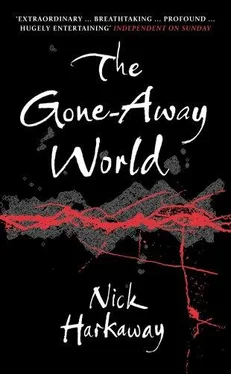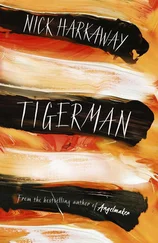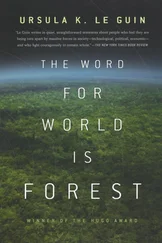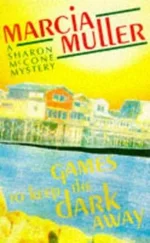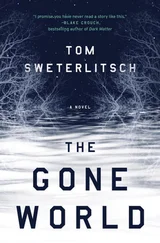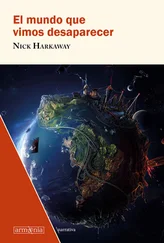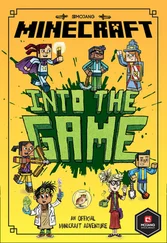Nick Harkaway - The Gone-Away World
Здесь есть возможность читать онлайн «Nick Harkaway - The Gone-Away World» весь текст электронной книги совершенно бесплатно (целиком полную версию без сокращений). В некоторых случаях можно слушать аудио, скачать через торрент в формате fb2 и присутствует краткое содержание. Жанр: Фантастика и фэнтези, Фэнтези, на английском языке. Описание произведения, (предисловие) а так же отзывы посетителей доступны на портале библиотеки ЛибКат.
- Название:The Gone-Away World
- Автор:
- Жанр:
- Год:неизвестен
- ISBN:нет данных
- Рейтинг книги:4 / 5. Голосов: 1
-
Избранное:Добавить в избранное
- Отзывы:
-
Ваша оценка:
- 80
- 1
- 2
- 3
- 4
- 5
The Gone-Away World: краткое содержание, описание и аннотация
Предлагаем к чтению аннотацию, описание, краткое содержание или предисловие (зависит от того, что написал сам автор книги «The Gone-Away World»). Если вы не нашли необходимую информацию о книге — напишите в комментариях, мы постараемся отыскать её.
The Gone-Away World — читать онлайн бесплатно полную книгу (весь текст) целиком
Ниже представлен текст книги, разбитый по страницам. Система сохранения места последней прочитанной страницы, позволяет с удобством читать онлайн бесплатно книгу «The Gone-Away World», без необходимости каждый раз заново искать на чём Вы остановились. Поставьте закладку, и сможете в любой момент перейти на страницу, на которой закончили чтение.
Интервал:
Закладка:
i. hollowing out a small basin
ii. pouring thereinto a large quantity of flammable stuff, leavened with such kindling and fuel as may be garnered from the rear of the car and the ground nearby
iii. making, by means of more stuff, a fuse or trail back to the lakeside, where
3) we shall await him and when he is safe,
4) jointly ignite the furnace.
This all duly done, a strange and beautiful thing happens, which is absolutely not what we had in mind.
The thing begins as advertised, with a bright flame licking smartly across the ice to Old Man Lubitsch’s reservoir. That reservoir, lighter fuel with an admixture of dry wood and charcoal, and a couple of rags from the back of the 4 × 4, catches and burns well, a five-foot-high column with its feet in the ice. A certain amount of smoke goes up, which may also be steam. The whole thing seems to be doing very little in the way of melting the ice, but perhaps it’s early days. And indeed, it is early days; the next stage is somewhat more dramatic than we had envisaged. There is a noise as of incoming mortars or a train crash or the steeple of the church falling into the vestry. It is a vast, tectonic, tearing noise which seems to come from everywhere. In truth, it is probably none of these things, but it is very loud, and I am a small boy.
The ice has split, as it does when you put an ice cube in your drink on a hot day. The fissure is narrow, but it is lengthening at speed, and other cracks are forming, and something vast is shrugging underneath. Ma Lubitsch, with a mother’s sense of threat and consequence, perceives the shape of things to come. As dinosaurs battle beneath the icecap, she throws her beloved, idiot family into the car and takes off at a clip Old Man Lubitsch himself finds somewhat startling. Gonzo and I stare back at Megg Lake, fascinated, through the rear window. Thus we alone in all the world are positioned to see what happens when the run-off of an entire range of hills is pent up for several days beneath a plug of ice and air, and then released by a rebellious sexagenarian with a yen to relive his glory days in front of his family.
The icecap gives a final wriggle, and goes “shhOOOMF!” and a frothing eruption boils up and out. The plume of water reaches higher than the high trees by the lakeside, and lumps of ice like Sunday roasts fall ahead of us on the road. The full weight of water from the Mendicant Hills, thwarted these many days in its passage to the sea and gathered underground in a column of pressure two hundred feet high, is at last released.
A duck, knocked unconscious by a bit of ballistic slush, tumbles to the ground in a field to our right. And then, extremely locally, it rains. It rains sleet and snow and ice, and a small number of unhappy frogs.
Old Man Lubitsch looks back down the road at the devastation, and he starts to laugh. It is not a hysterical laugh, but a genuine, delighted, belly laugh at the view, the madness, the gorgeousness of the cock-up. Ma Lubitsch calls him a string of names, but her face is flushed and she, too, is laughing, and it seems likely that if ever Gonzo is to get a younger brother, it will be tonight.
The Cove Cold Snap ends a few days later, as if by sympathetic magic we have broken the grip of winter on the land. The snow melts overnight, and there are little green things eagerly yammering for attention shortly after. The Lubitsch donkeys, cause of great and now-forgotten turmoil, are led reluctantly from their winter accommodations and told to start thinking of themselves as outdoor beasts again. Their mournful and utterly mendacious cries of distress are responsible for some sleepless nights in the Lubitsch house, but Ma Lubitsch keeps to her iron rule and the donkeys get the message, and are content.
THUS GONZO, incendiarist and leader of men. And Gonzo’s inescapable hanger-on—the kid no one notices? He also grows up. Not even last-picked for football teams and athletic tryouts, the perpetually benched; he is Gonzo’s shadow and occasional conscience when the Plan—be it raiding the kitchen for food or escaping this borstal to live with Gypsies in Mongolia (described by the Evangelist as “a festerance of Sin and Capitulation,” on what evidence I cannot guess)—calls for excesses in excess of what the authorities will accept as demonstrating that boys will be boys. Outwitting the librarian and purloining banned books is almost expected; releasing the inmates of the ant farm along a trail of purloined sugar leading to the staff showers is ingenious enough to merit wry applause from the science master along with a string of punishment duties; making and testing explosives with cheap domestic ingredients I veto, not out of any dislike for the splendidness of the concept, but from a natural awareness that there are borders everywhere, and sending the football pavilion—even empty—four hundred feet into the air using homebrew nitroglycerine is on the far side of both what would be tolerated and our own alchemical competence. I remember, where Gonzo does not, the safety film featuring scarred and rueful victims of their own hubris urging us against such ventures. We settle instead on a concoction intended to induce percussive internal combustion in the rumina of cows, but the test subjects are unaffected by the stuff, save for a minor increase in distraught mooing.
At fourteen, Gonzo discovers martial arts movies: the oeuvre of Messrs. B. Lee and J. Chan, along with assorted other players of greater and lesser talent. The martial arts film is a curiously sentimental thing, fraught with high promises and melodrama. Those of the Hong Kong variety are frequently filled with untranslatable Chinese puns delivered in a bout of sing-song badinage. The plots are moral, Shakespearean, and have a tendency to charge off in some unexpected direction for twenty minutes before returning to the main drama as if nothing has happened.
Inspired by these, Gonzo commences to study karate. He is the ideal candidate: fearless, physical and delighted by the changes wrought in his body by multiple press-ups, his only disadvantage that he comes late to the party. Had Gonzo begun his training younger, he might one day be a true master. As it is, he must content himself with being merely an excellent student. For the weedy sidekick (whose yokogeri kekomi is indeed the weediest in the school’s catchment area), karate is another arena in which life’s beatings are legitimately delivered, but he struggles on. He has—I have—despite a long-nurtured understanding that he cannot equal his friend’s achievements—never learned to quit, one virtue he possesses which is utterly alien to Gonzo, whose effortless rampage through life has never required him to consider it.
And then one day the universe decides that I am fledged, and accordingly demands of me my first solo flight; Mary Sensei leads me from the tatami to examine my now-familiar bloody nose. It has never broken, but—unlike my hands, which remain fragile despite hours of training at the bag—it must by now have developed a mighty sheath of calcium. I wonder if I can shatter boards with it. Mary Sensei replies that this is unlikely, and she would prefer that I delay the experiment indefinitely. Five foot three and fifty-four kilos, Mary Sensei tells me I’m not cut out for karate. But my dedication is sufficiently impressive that she can suggest an alternative: another school.
I object that Gonzo won’t want to change schools.
“No,” Mary Sensei explains. “Not Gonzo. Gonzo will do fine here. Just you. Without Gonzo.”
This is a new concept, but not—oddly—an unpleasant one.
“Another karate school?”
“No. Another style. Maybe a soft form.”
“What’s a soft form?”
She tells me.
The upshot is a tour of the local schools of soft-form pugilism, and the first thing which becomes apparent is that the term “soft” is misleading because it is relative, the comparison being with men and women so desperate to turn themselves into machines of empty-handed demolition that they have spent hours and days and months striking wooden boards and sandpapered target dummies to condition their fists, and who consider an hour ill-spent if they have not driven one foot through a pile of bricks. It is not a question of whether the style is violent, but of whether that violence is direct and forceful or subtle and convoluted. To the eye of a novice, soft forms appear delicate, baroque and artistic, while the hard forms are brutish and merciless. The truth is that the soft forms are more considered in their application of pain and damage to the body. Which is more unpleasant to the object of their attentions is an open question—and which variety attracts more dangerous lunatics in the suburban setting is also unclear. I rapidly reject the smiling, flinty aikidoka, whose expressionless perfection informs the opponent that his life or death is irrelevant, and whose motions include a sword-cut twist at the end to provide the coup de grâce. Their modern, street-fighting cousins of European and Brazilian ju-jitsu are also unsatisfactory; the former are cheery, laddish men tending to be under five foot six and almost the same across the shoulder, the latter are chuckling lunatics with a fondness for submission holds and women in impractical swimwear. Puritanical and sovereign, I stalk from their classroom without a second look—but this leaves me with a problem. Judo is as much sport as self-defence. T’ai chi is fluid and elegant but requires an entire lifetime to be usable in combat. More esoteric—and, to be honest, no softer than karate—escrima and silat are not taught anywhere within an hour of Cricklewood Cove. I look in desperation at Mary Sensei, and perhaps, this once, my need is enough.
Читать дальшеИнтервал:
Закладка:
Похожие книги на «The Gone-Away World»
Представляем Вашему вниманию похожие книги на «The Gone-Away World» списком для выбора. Мы отобрали схожую по названию и смыслу литературу в надежде предоставить читателям больше вариантов отыскать новые, интересные, ещё непрочитанные произведения.
Обсуждение, отзывы о книге «The Gone-Away World» и просто собственные мнения читателей. Оставьте ваши комментарии, напишите, что Вы думаете о произведении, его смысле или главных героях. Укажите что конкретно понравилось, а что нет, и почему Вы так считаете.
